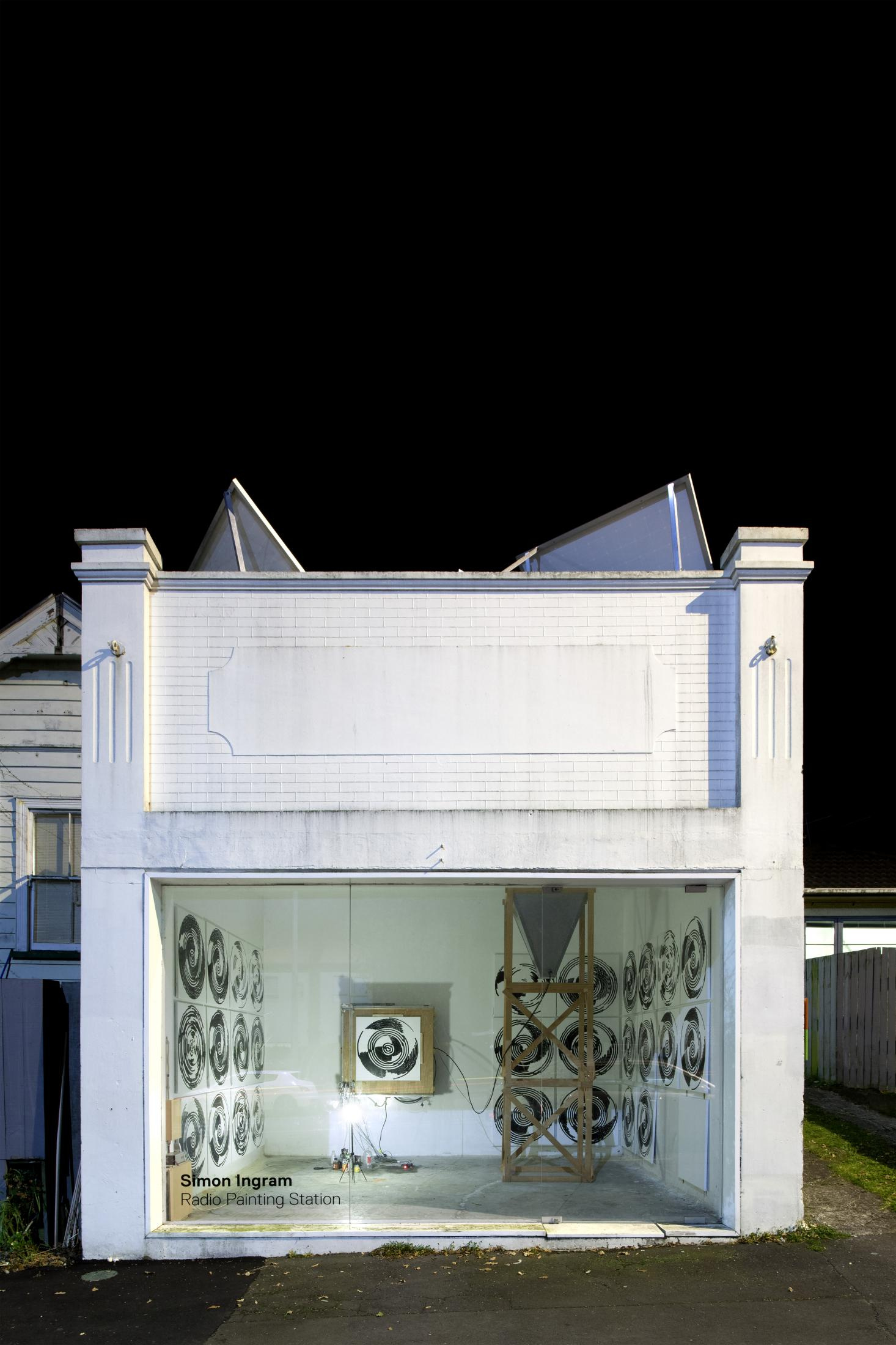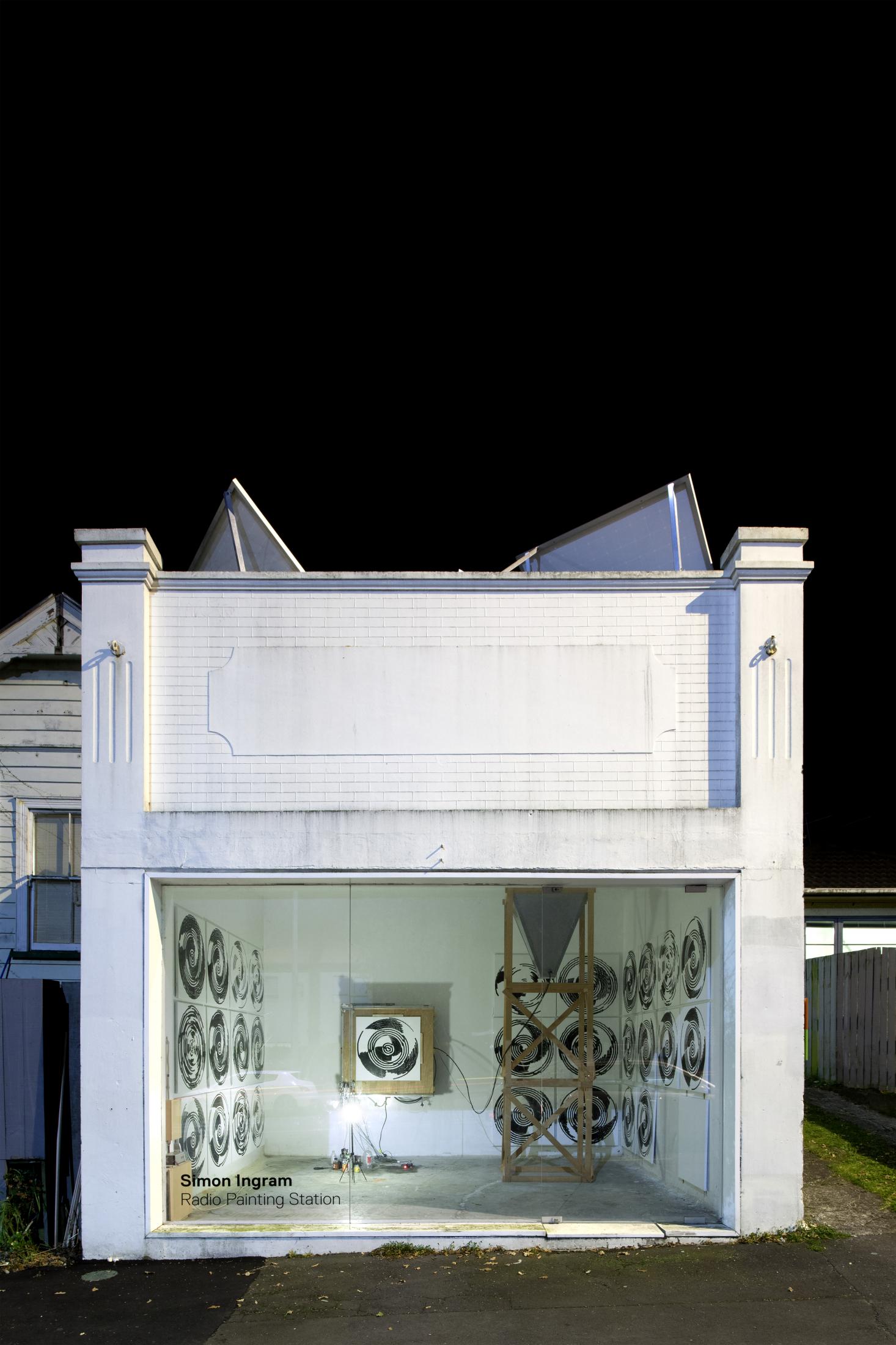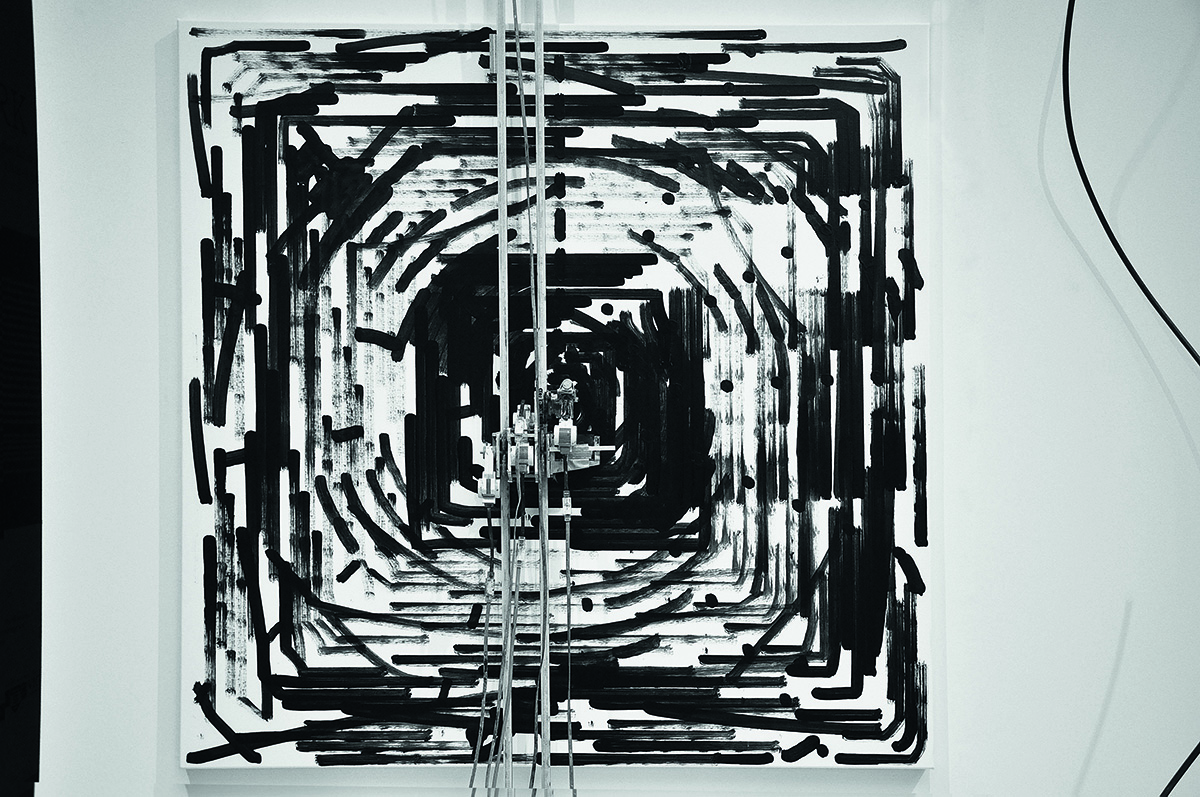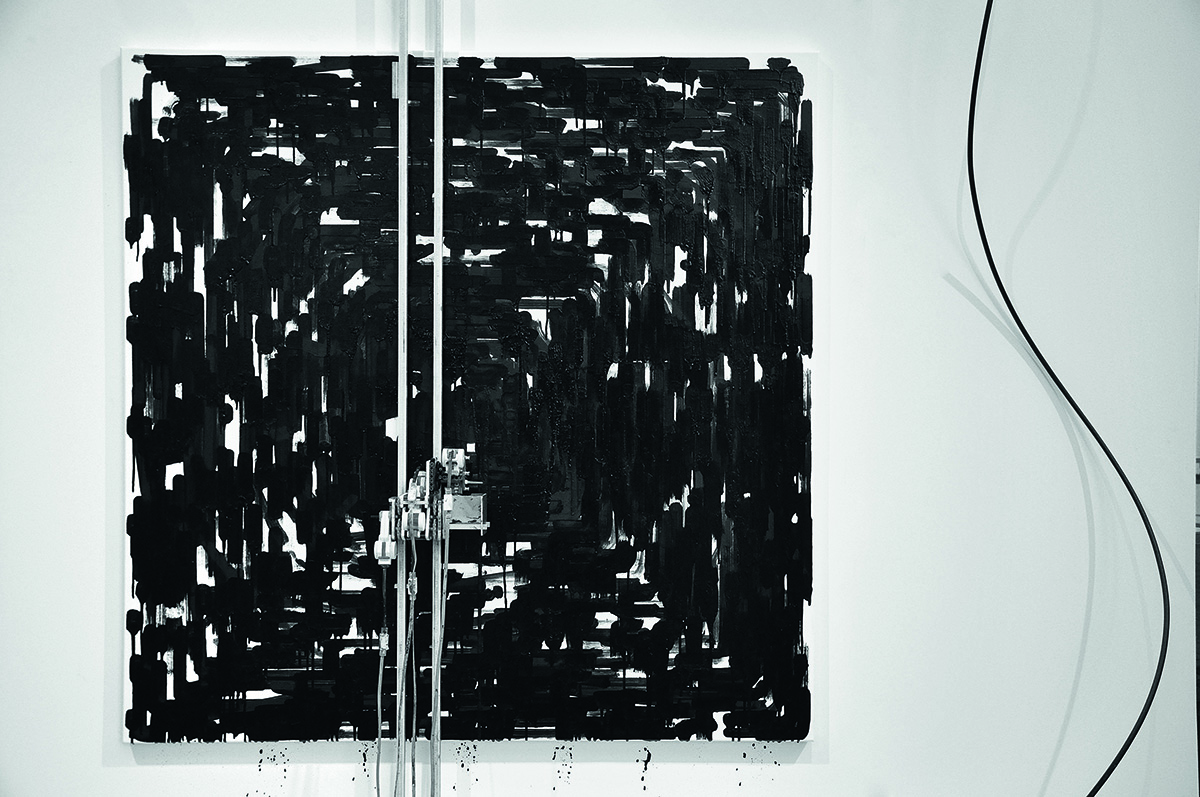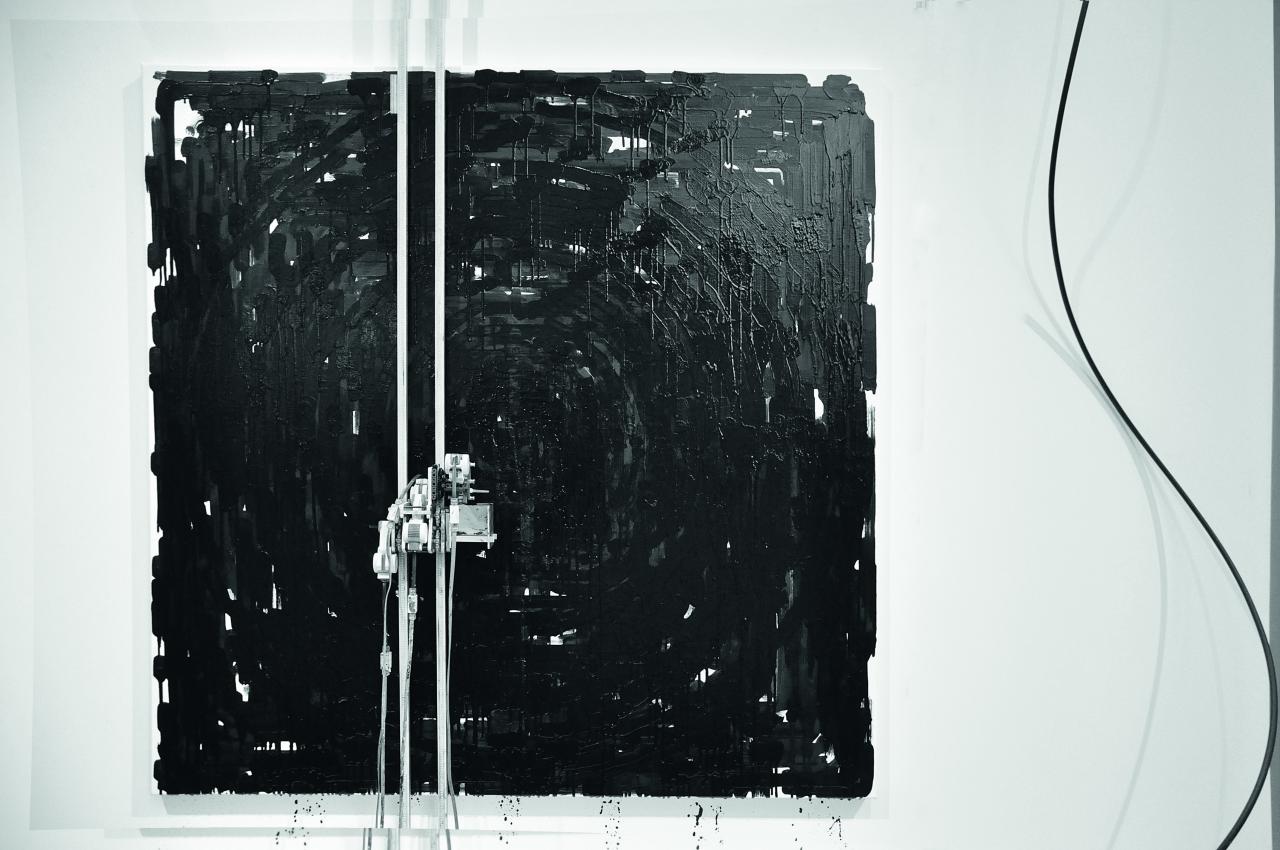Radio Painting Station: Looking for the Waterhole
2017
- Title
- Radio Painting Station: Looking for the Waterhole
- Year
- 2017
- Copy Number
- 048
- Medium / Material / Technic
- installation, radio telescope with painting robot
At the exhibition from December 15, 2017 to February 11, 2018
In 2002, physicist Stephen Wolfram asserted that »our whole universe may be governed by a single underlying simple program.« [1] The complexity we experience in our life world, including us, is the result of a simple program, perhaps one or two lines, that has been running for a long time and for which we have not cracked the code. »Radio Painting Station: Looking for the Waterhole« [2] takes up this proposition and sets out to observe the cosmos above Karlsruhe at 24:00 hours and plot differences in a series of four compositions.
The subject of »Radio Painting Station: Looking for the Waterhole's« observations is the hydrogen line: the spectral emissions produced as neutral hydrogen atoms in the interstellar region undergo state transitions as they absorb energy. The work itself is a »mise-en-scène« where a radio telescope concentrates, filters, amplifies and digitizes these emissions [3] for a mechatronic system to codify as a series of paintings in a durational format from December 15, 2017 to January 14, 2018. The chosen concentric mode of visualization has an onomatopoeic relationship with its atomic referent, and allows, through comparison, a language of difference to emerge.
Supported by Kamahi Electronics, ZKM | Karlsruhe, The University of Auckland and the Chartwell Trust.
[1] Available online at: http://www.wolframscience.com/reference/quick_takes.pdf (accessed 25/09/2017).
[2] The Waterhole is a phrase coined by Bernard M. Oliver to describe a band of radio frequencies most likely to support life. This band is bookended by emissions from neutral hydrogen — 1420 MHz (a wavelength of 21 cm) — and hydroxyl (1666 MHz, a wavelength of 18 cm).
[3] Voltage at 1420 MHz (a wavelength of 21 cm).
